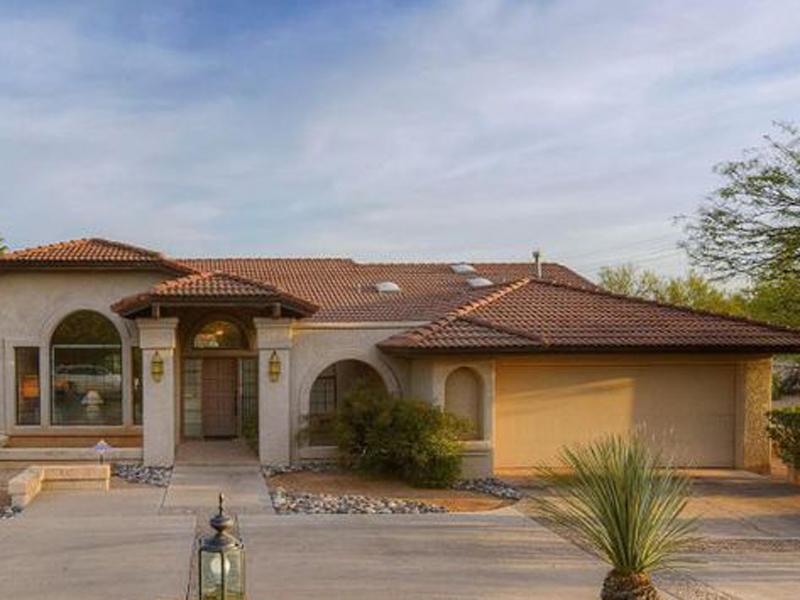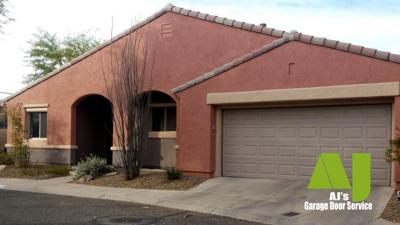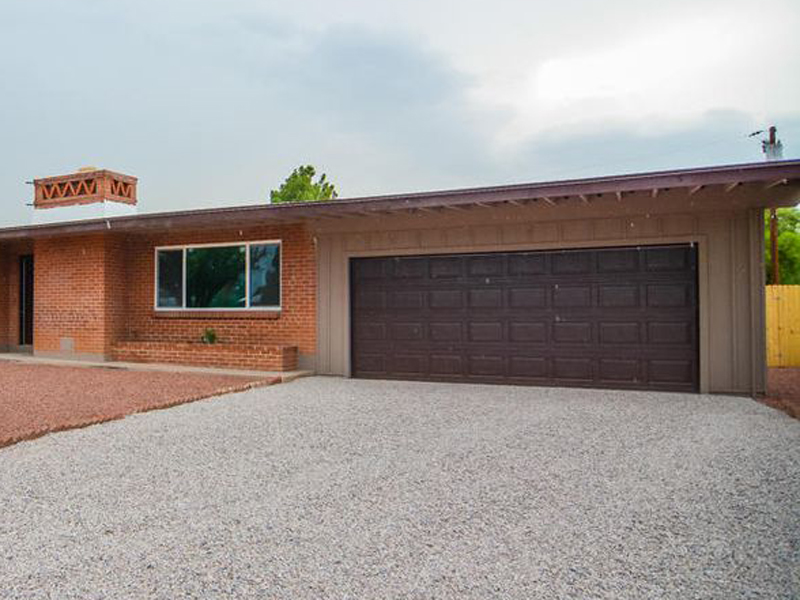My Garage Will Not Open - Professional Troubleshooting Tips
Is Your Garage Door Stuck? Right here's What to Do Initial
When your garage door won't open, begin with these essential safety and security checks before attempting any kind of repair work. Initially, guarantee no one is standing near the door and that automobiles are free from the opening. Look for evident indications of damage like broken panels, bent tracks, or hanging cable televisions. If you see a snapped springtime or seriously harmed components, quit right away and call a specialist—-- these repair services require specific tools and proficiency to manage safely.

Inspect These 6 Things Prior To Calling a Professional
Before assuming you require costly fixings, run through this fast diagnostic list that fixes most garage door troubles:
-
Power source: Validate the opener is connected in and the electrical outlet is working
-
Remote batteries: Replace dead batteries in your push-button control
-
Manual lock: Inspect if somebody unintentionally involved the manual lock
-
Blockages: Look for particles blocking the door's path or sensing units
-
Emergency situation launch: Ensure the red emergency situation cable hasn't been pulled
-
Breaker: Verify the garage circuit hasn't tripped
These basic checks deal with roughly 70% of garage door issues without needing specialist treatment.
10 Typical Reasons Your Garage Door Will Not Open
Recognizing why your garage door opener isn't working aids you select the best solution. Right here are one of the most constant reasons homeowners experience:
Dead remote batteries represent the simplest fix—-- when batteries die, the remote can't send out signals to the opener. Power interruptions or tripped breakers reduced electrical energy to the motor. Damaged springtimes prevent the door from lifting properly and need instant specialist interest. Sensing unit imbalance causes safety systems to block door procedure. Track obstructions stop rollers from relocating efficiently. Motor overload triggers automatic shutoffs when the opener discovers resistance. Limit button troubles perplex the opener regarding door setting. Cord damages interferes with the lifting device. Weather-related issues affect door activity during severe temperature levels. Part wear from age progressively lowers system efficiency.
Issue # 1: Dead Remote Batteries
When your wall surface button functions yet your remote doesn't, dead batteries are normally the wrongdoer. Most garage door remotes use either 3-volt lithium or 12-volt alkaline batteries. Get rid of the back cover of your remote and inspect the battery type. Change with fresh batteries and test the remote. If it still does not work, you may need to reprogram it to your opener. Consult your opener's manual for details reprogramming guidelines, as the process varies by producer.
Problem # 2: Power Supply Issues
Garage door power troubles typically come from loose connections or tripped circuits. Examine that the opener is securely linked into its outlet—-- vibration can loosen links with time. Evaluate the electrical outlet with one more device to verify it's functioning. Analyze your home's breaker box for tripped circuits, especially if you have actually experienced tornados or power changes. GFCI electrical outlets might have stumbled and need resetting. If the opener has power however will not react, the concern likely lies somewhere else in the system.
Problem # 3: Broken or Damaged Springs
Damaged garage door springtimes are amongst the most harmful elements to handle. If you listen to a loud bang from your garage or notice the door really feels incredibly hefty when trying to raise manually, a springtime has actually most likely snapped. Torsion springtimes run horizontally over the door, while expansion springs remain on either side. Never ever try spring repair services yourself—-- these parts keep incredible stress that can trigger serious injury or death. Expert replacement normally costs $150-$300 but guarantees your safety and security.
Issue # 4: Blocked Safety And Security Sensing Units
Modern garage doors include security sensing units that stop closure when items are identified. These sensing units can stop the door from opening up if they're dirty, misaligned, or blocked by particles. Tidy sensing unit lenses with a soft towel and make sure absolutely nothing blocks the invisible light beam in between them. Inspect that sensing units are appropriately straightened—-- a lot of have sign lights that reveal connection condition. Sensing unit problems frequently fix with straightforward cleaning and modification.
Issue # 5: Track Obstructions or Damages
Garage door tracks overview rollers as the door goes up and down. Dirt, particles, old grease, or little things can jam the system. Inspect tracks aesthetically and eliminate any kind of blockages with a brush or fabric. Seek damages, bends, or warping that can hamper smooth procedure. Small track modifications are possible for helpful house owners, however significant damage needs professional fixing to prevent more issues or safety and security threats.
Trouble # 6: Garage Door Opener Electric Motor Issues
When the garage door electric motor runs yet the door does not relocate, numerous problems could be accountable. The motor might be overwhelmed and turning off as a safety measure. Gear wear, particularly in older devices, can avoid proper procedure. Chain or belt drive issues impact power transmission. If you hear unusual grinding, clicking, or humming noises, stop utilizing the opener promptly. Motor fixings often set you back more than replacement, especially for units over 10 years old.
Step-by-Step DIY Troubleshooting Overview
Follow this organized technique to garage door fixing while focusing on security throughout the procedure:
Action 1: Test the wall surface button first. If it works but the remote doesn't, focus on remote issues. If neither jobs, check power supply.
Step 2: Take a look at the manual release cable. If it's been pulled, the opener is disengaged from the door. Press the cart back to reconnect.
Step 3: By hand evaluate the door by disengaging the opener and attempting to lift the door by hand. It must relocate efficiently and remain in place when half-open.
Tip 4: Examine visible components for damages, paying special attention to springtimes, cable televisions, and tracks.
Step 5: Examine all safety and security attributes including sensing units, limitation switches, and auto-reverse features.
Step 6: Examination different controls (remote, wall switch, keypad) to separate the problem source.
Always use shatterproof glass and job handwear covers when carrying out evaluations, and never effort fixings on springtimes or high-tension parts.
When to Call a Professional vs. DIY Solutions

Understanding when to call a garage door expert versus attempting do it yourself repair work safeguards both your security and your wallet. Take care of these problems on your own: dead remote batteries, power supply troubles, small track cleaning, sensing unit cleansing and alignment, and standard lubrication.
Never attempt these repair services yourself: springtime replacement or adjustment, cable television fixings, significant track adjustment, electrical wiring problems, opener motor substitute, or any type of repair work including high-tension elements. Professional specialists have actually specialized devices, training, and insurance coverage to handle harmful fixings safely.
Take into consideration repair service expenses versus replacement expenses, specifically for doors over 15 years old. Modern garage doors provide better safety functions, power effectiveness, and reliability than older models.
Emergency Situation Garage Door Solutions
When you're stuck with a garage door that won't open up and require prompt gain access to, adhere to these emergency procedures:
Handbook Procedure: Pull the red emergency release cord to disengage the opener. This enables hands-on operation but needs appropriate strategy to stay clear of injury. Lift the door slowly and equally, using leg muscular tissues as opposed to your back. Many household doors consider 100-150 extra pounds, making them manageable for most adults.
Short-lived Solutions: If the door opens manually yet won't keep up, prop it open with sawhorses or clamps—-- never ever utilize your body or vehicles as assistances. For doors that will not close entirely, make certain the opening is secured if you have to leave.
Emergency situation Service: Many garage door firms use 24/7 emergency situation solution for scenarios involving safety problems, entraped lorries, or full system failures. While more costly than normal service phone calls, emergency repairs offer prompt solutions when needed most.
Safety and security Warning: What NOT to Do
Garage door safety and security requires understanding harmful repair work that should never ever be attempted by property owners:
Never try to fix springs—-- they store enough energy to cause fatal injuries when they break or are poorly dealt with. Don't force a stuck door—-- this can harm the opener, tracks, or door panels, developing extra pricey problems. Stay clear of bypassing security functions—-- sensing units and auto-reverse devices avoid significant injuries and home damages.
Do not ignore weird sounds—-- grinding, scuffing, or banging noises indicate issues that intensify over time. Never ever utilize the door if cords are frayed or broken—-- the door might fall suddenly. Don't try electric repair work unless you're a certified electrical contractor—-- garage door openers use both 120V house current and low-voltage control circuits.

Preventative Maintenance to Prevent Future Problems
Routine garage door maintenance protects against most typical problems and prolongs system life expectancy significantly:
Monthly Jobs: Visual assessment of all parts, testing auto-reverse safety features, examining and tightening equipment, and cleansing tracks and sensors.
Quarterly Jobs: Lubricating all moving parts with suitable garage door lubricating substance, testing manual procedure, and checking weather sealing.
Yearly Tasks: Professional evaluation and tune-up, springtime adjustment if required, and opener upkeep including belt or chain change.
Seasonal Jobs: Preparing for weather extremes, inspecting insulation, and readjusting opener setups for temperature level modifications.
Constant maintenance prices much less than emergency situation repair work and ensures trusted operation year-round.
Garage Door Will Not Open FAQs
Why won't my garage door open with the remote however collaborates with the wall button?
This typically suggests dead remote batteries, signal interference, or the requirement to reprogram the remote. Examine batteries first, then consult your opener guidebook for reprogramming instructions.
Can I by hand open my garage door if the power is out?
Yes, pull the red emergency situation launch cord to disengage the opener, after that lift the door by hand. Be planned for the door's complete weight and lift with correct method to avoid injury.
Exactly how do I recognize if my garage door spring is damaged?
Indicators include a loud bang from the garage, the door feeling very heavy when lifting by hand, visible spaces in the spring coils, or the door just opening up a few inches prior to stopping.
Is it safe to use my garage door if it will not open up all the way?
No, partial procedure indicates mechanical troubles that could intensify unexpectedly. Quit using the door and have it evaluated by a specialist to prevent additional damages or injury.
What should I do if my garage door opens yet won't shut?
Examine safety sensing units for blockages or imbalance, take a look at the tracks for particles, and test the auto-reverse function. If these don't solve the problem, seek advice from an expert.
Just how much does it cost to deal with a garage door that will not open?
Prices differ commonly relying on the problem: battery substitute ($5-$10), professional medical diagnosis ($50-$100), spring substitute ($150-$300), or opener replacement ($200-$500).
Can weather impact my garage door's capacity to open up?
Yes, extreme cold can thicken lubes and affect metal parts, while warmth can cause expansion concerns. A lot of problems solve as temperature levels normalize, but persistent concerns may need professional focus.
Why does my garage door open a couple of inches after that stop?
This normally shows broken springs, limit switch issues, or track blockages. The opener's safety and security attributes stop procedure when resistance is found, protecting against damage to the electric motor or door.
Obtain Specialist Help for Facility Concerns
When DIY fixing does not settle your garage door troubles, specialist specialists give the expertise and tools needed for risk-free, long-term fixings. Certified professionals detect problems accurately, use manufacturer-approved parts, and give warranties on their job.
Specialist services include: extensive system evaluations, spring and cable television replacement, opener fixing and replacement, track positioning and substitute, electric troubleshooting, and emergency situation service phone calls.
What to anticipate: in advance pricing, accredited and insured technicians, same-day solution for lots of repairs, and follow-up upkeep referrals.
Most garage door business offer complimentary estimates for major repairs and can offer instant options for what to do if garage door won’t close at night immediate troubles affecting home protection or car accessibility.
Obtaining Your Garage Door Working Again
A garage door that will not open up does not need to wreck your day or break your budget. Start with straightforward troubleshooting steps like examining power, changing batteries, and checking out for evident obstructions. Several issues have fast do it yourself services that recover normal procedure within minutes.
Nevertheless, recognize when professional help is essential—-- especially for spring-related issues, electrical troubles, or complex mechanical failures. Trying hazardous repair work yourself takes the chance of significant injury and usually produces a lot more expensive troubles.
Regular upkeep stops most garage door concerns and makes sure reputable procedure for many years to find. When issues do happen, resolve them promptly to avoid more costly repairs and preserve your home's protection and ease. Whether you require a basic battery replacement or total system overhaul, solutions exist to get your garage door functioning efficiently again.